A great garden, I’ve always believed, is one that takes full advantage of its space with apparent ease. It doesn’t work too hard at being something it isn’t. It wears itself well and with quiet confidence, fully embracing its space. Most gardeners approach their land with a two-dimensional mind-set, rarely looking up and considering the possibility of maximizing what is overhead. In a time when property is less available and more expensive, this no longer makes sense.
Great designers approach a space like a sculptor would approach a cube of raw stone. A determined amount of stone is carefully removed until just the right amount remains, and that amount is formed into something beautiful. Thinking of your space in these terms, as a three-dimensional cube, will allow you to develop your garden to its full potential. Let’s see how you can sculpt the mass that is your personal space and turn it into something extraordinary.
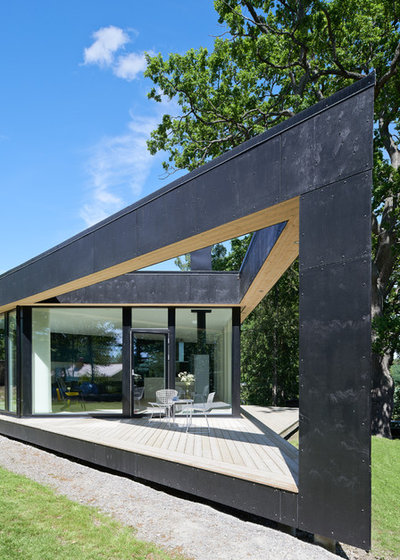
DAP stockholm AB
Look at this deck and how it is framed with a highly stylized pergola. It defines a specified area, or three-dimensional mass. It incorporates positive space in the form of patio furniture, and negative, or empty, unused space. But unused space is of value. Thinking of your space in these terms will help you define it, which is the first step in the design process.
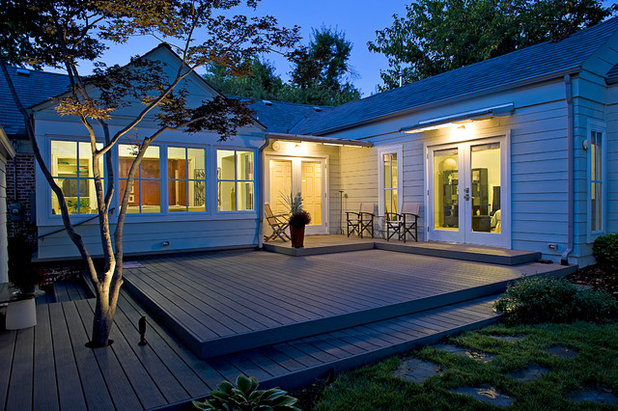 Accentuate planes.
Accentuate planes. In geometry, a plane is a flat surface. Using planes in garden design captures and enlarges the sense of open space, as they push the eye upward and outward. This is why a floating deck in a very small space works so well. To successfully have planes, the area needs to be very flat. If a grade change needs to be made, a stepped-up succession of planes, as shown here, should be employed.
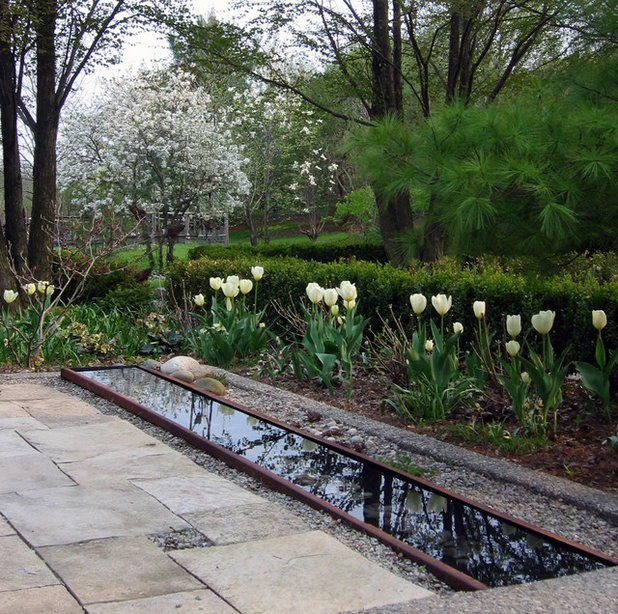
Enroot Landscape Planning and Design
Employ reflection. Capturing and politely exploiting reflection is another way to work with mass and open space. Since gravity levels quiet water, forming a plane, reflection is optimized. Notice how this narrow rill reads as expansive and how reflected light causes shadows, visually enhancing its depth.
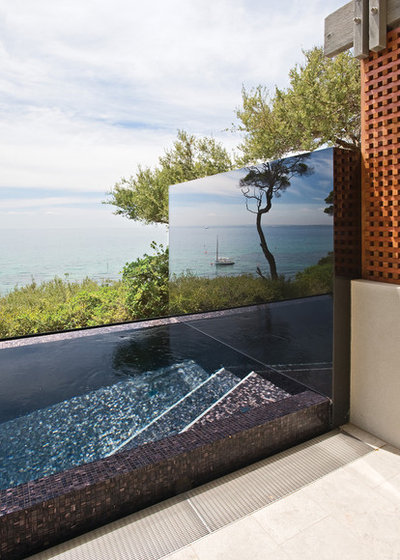
Simple Steps
This pool incorporates a vertical plane made of polished stone. Notice how it is reflective, making the most of the deck’s airspace.

Luigi Rosselli Architects
Integrate seating. Patio furniture, which is functionally necessary, can often appear intrusive in the flow of a space. Integrated, or built-in, seating can easily follow the overall lines of the area, maximizing and celebrating the feeling of open space.
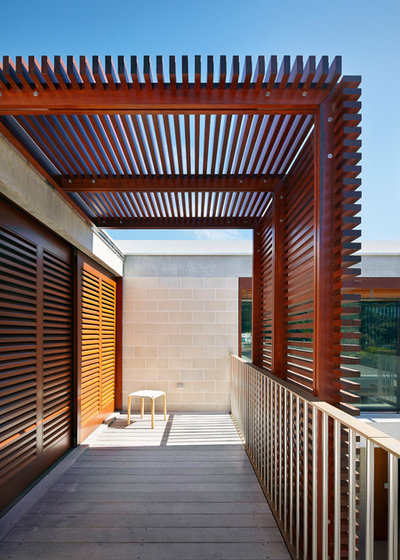
Porebski Architects
Capture space and reduce its scale. There are times when an open space can feel overwhelming and impersonal. Consider building an open pergola that effectively captures open mass and reduces its volume so that people can process the space more easily. Pergolas can be planted to soften their architectural impact if desired.
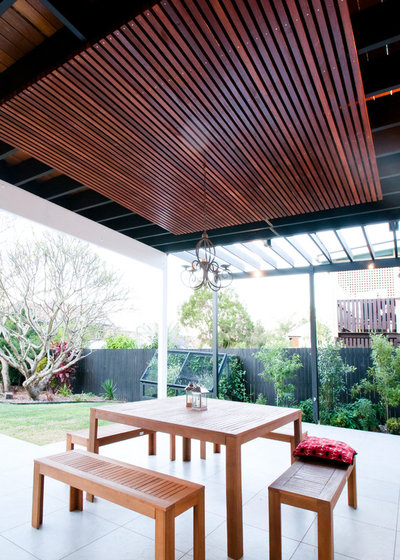
Harris Designs
Compress a space to make an adjacent space feel massive. Think about the times you’ve walked down a narrow corridor that emptied into a large room. If you paid attention, you noticed that you experienced a bit of an emotional boost when you passed into the larger space. This same concept can be utilized in the garden to elicit emotion and to make a smaller space feel more massive. Notice how in this photo the ceiling has been dropped and how the lowest section mimics the tabletop that sits underneath. This sense of compression provides intimacy at the table while making the garden beyond appear more massive.
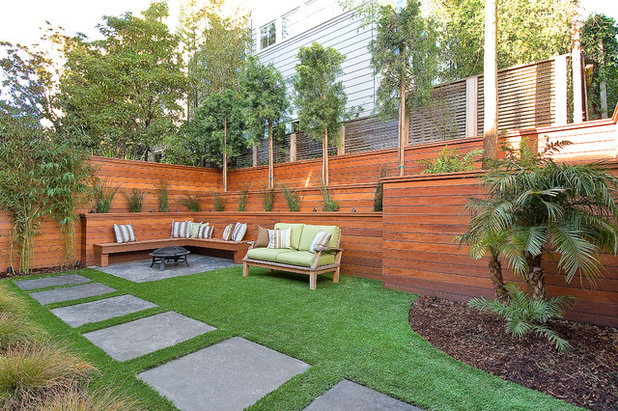
Rico's General Construction Inc.
Recess the garden walls. Layering garden walls can make a space feel more massive. Even in a small garden, taking up extra floor space to layer walls may be worth the trade-off. In this garden, the seating has a minimalistic sculptural quality, making up for any lost square footage.
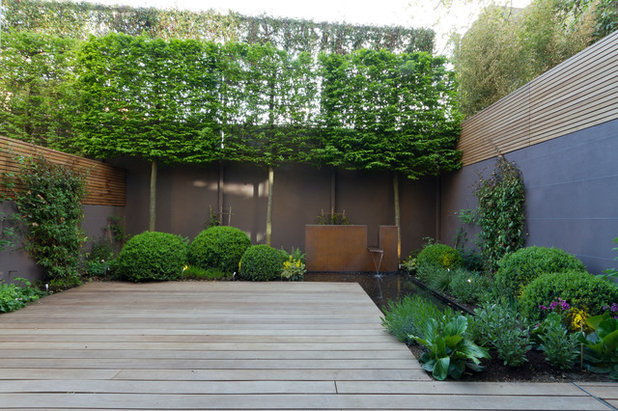
Landform Consultants Ltd
Raise the tree canopy. Additional vertical space is frequently at our fingertips if we think to raise the tree canopy. A similar way to accentuate mass is through pleaching a row of trees, as shown here. Essentially a raised hedge, this installation pulls the eye through a small space, emphasizing mass, while its shape mimics it.
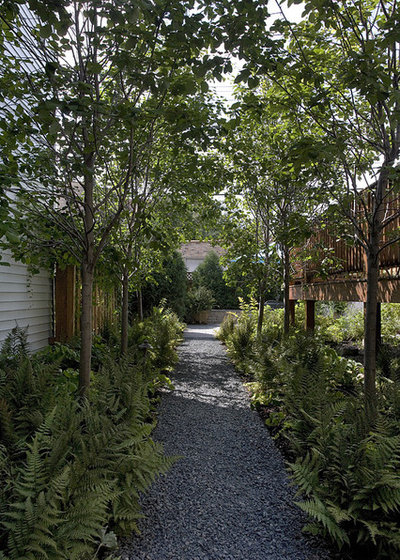
The Garden Consultants, Inc.
Plant an allée of trees. Similarly sized and shaped trees planted along a path or driveway can emphasize the mass of an area. Notice how these trees both pull the eye through the space and lift the eye toward the sky. To make a short path feel longer, consider planting trees of slightly decreasing size at closer intervals as they proceed toward the end of the run.
More guides to landscape design





